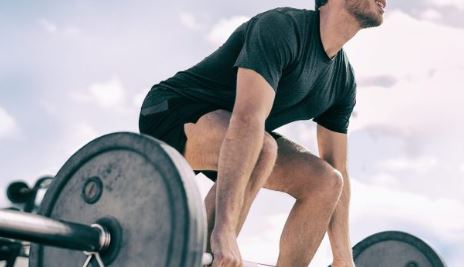Sports-specific conditioning is the cornerstone of athletic success, providing athletes with tailored training programs that enhance performance and reduce injury risks. Each sport places unique demands on the body, requiring a strategic approach to fitness. To shed light on the intricacies of designing these programs, we consulted Dr. Jason Pirozzolo, an expert in sports medicine and performance optimization.
“Sports-specific conditioning is about preparing the body for the exact demands of the sport,” explains Dr. Jason Pirozzolo. “This means tailoring strength, endurance, flexibility, and agility exercises to match the movements and intensity required during competition.” A basketball player’s program, for example, focuses on explosive power and lateral agility, while a distance runner prioritizes cardiovascular endurance and efficiency.
Most importantly, understanding the biomechanics of a sport is critical when creating a conditioning program. The exercises and drills must mimic the movements athletes perform during competition. “Repetition of sport-specific movements not only improves performance but also strengthens the muscles and joints used most frequently, reducing the likelihood of injury,” says Dr. Jason Pirozzolo.
Developing strength is a cornerstone of most conditioning programs. Besides that, the type of strength training varies by sport. Football players require maximal strength and explosive power, achieved through exercises like squats and power cleans. In contrast, golfers benefit more from rotational strength and flexibility training, focusing on exercises like cable rotations and mobility drills. “Every sport demands a unique approach to strength training,” emphasizes Dr. Jason Pirozzolo.
Agility and speed training are also integral for sports requiring quick directional changes or sprints. Drills like cone drills, ladder exercises, and resisted sprints can improve an athlete’s ability to accelerate, decelerate, and change direction efficiently. However, endurance-based sports require conditioning that builds stamina through long-duration, low-intensity training and intervals.
Recovery is equally vital in any sports-specific program. Adequate rest, nutrition, and active recovery techniques ensure athletes can perform consistently without overtraining. “Recovery is where the body adapts to training,” explains Dr. Jason Pirozzolo. “Without it, athletes risk injury and burnout.”
Injury prevention strategies are integrated into conditioning programs to address sport-specific risks. For instance, basketball players often work on ankle stability to prevent sprains, while swimmers focus on shoulder mobility to avoid overuse injuries. “Addressing common injury patterns in a sport is one of the most proactive steps a conditioning program can take,” notes Dr. Jason Pirozzolo.
Technology has revolutionized sports-specific conditioning, with tools like wearable trackers and motion analysis software helping to refine training methods. These technologies provide real-time feedback, allowing coaches and athletes to make precise adjustments. “The data from these tools is invaluable for optimizing performance and preventing overtraining,” says Dr. Jason Pirozzolo.
For those embarking on sports-specific training, Dr. Jason Pirozzolo offers the following tips:
- Work with a qualified coach or trainer to design a program tailored to your sport and position.
- Incorporate a warm-up and cool-down routine to prepare your body and aid recovery.
- Focus on proper technique, as poor form can lead to injuries and diminished results.
Athletes must also consider their mental readiness. Visualization techniques, goal-setting, and mindfulness practices enhance focus and resilience. “Mental conditioning is just as important as physical preparation,” explains Dr. Jason Pirozzolo. “Athletes who are mentally strong can push through challenges and perform at their best.”
Whether you’re a professional athlete or a recreational player, sports-specific conditioning provides the foundation for success. By addressing the unique demands of your sport and prioritizing recovery, you can improve performance while minimizing the risk of injury. “Conditioning isn’t just about training harder; it’s about training smarter,” concludes Dr. Jason Pirozzolo.
For expert advice on sports and orthopedic injuries, recovery strategies, and cutting-edge treatments, follow Dr. Jason Pirozzolo for insights into the latest developments in sports medicine and orthopedic medicine. You may also visit a Key West orthopedic clinic for more information.

